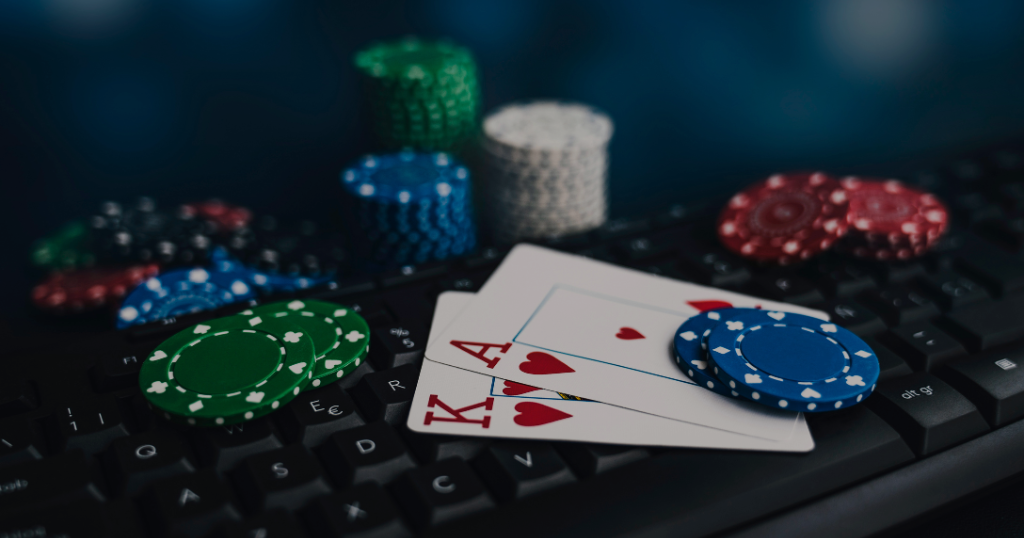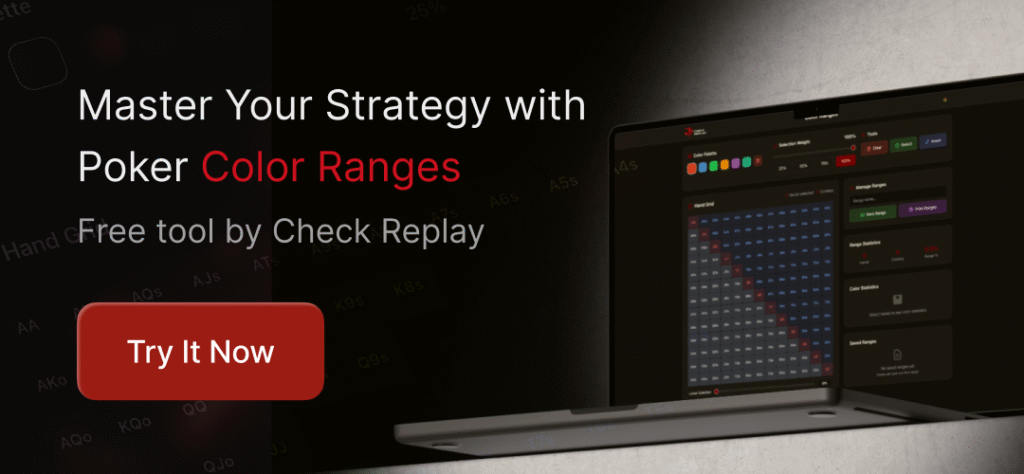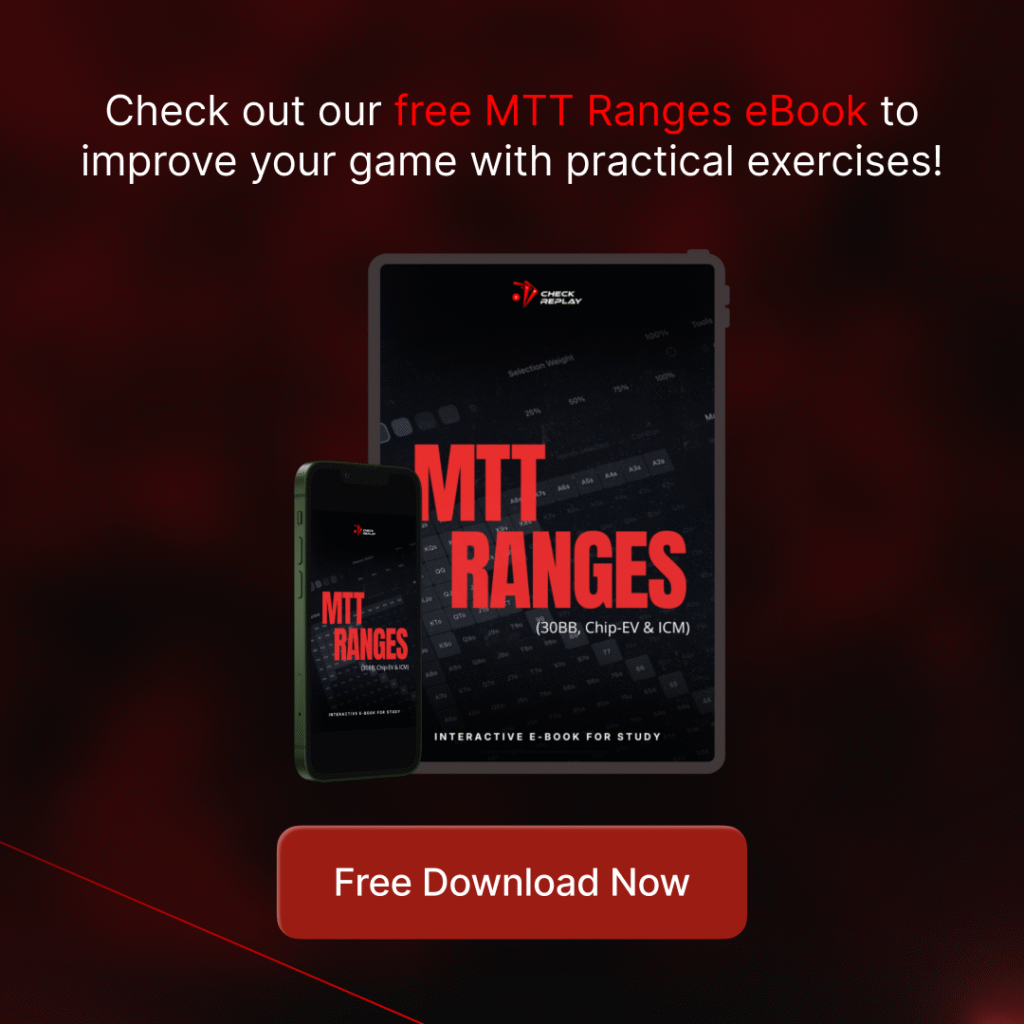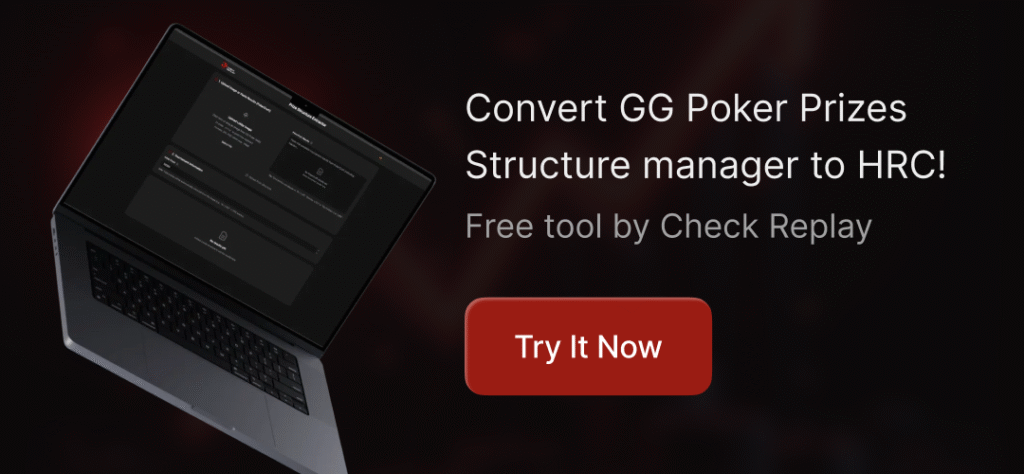I used to sit down and jump right into a poker session, thinking I was ready. Then I’d wonder why I felt off, distracted, impatient, or just a little sloppy with decisions. Turns out, the problem wasn’t my strategy. It was my lack of a warm-up.
I realized that jumping straight into the action made me miss obvious cues about my focus and mindset.
That’s when I started using hand replayer, like Check Replay, reviewing my last sessions to understand how I was thinking before I even played. Seeing those patterns helped me realize that preparation wasn’t optional, it was essential.
If you’ve noticed how some players seem calm and sharp from the first hand while others take forever to get in rhythm, the difference often comes down to one simple thing: preparation.
Think about it, every athlete warms up before competing. Why should poker be any different? Sure, we’re not running laps or stretching hamstrings, but poker is still a mental sport. And your brain, just like your body, performs better when it’s properly primed.
What does a poker warm-up actually mean?
A poker warm-up is basically a short mental routine you do before sitting down to play. It’s not about physical exercise; it’s about getting your head in the right space.
The goal is to build focus, stay emotionally balanced, and remind yourself of the strategy you’ve been studying. Just like athletes visualize their plays before a game, poker players can use this time to review key concepts, reduce stress, and boost confidence.
One of the most effective ways to warm up is to look at your own recent hands, not just random theory.
With Check Replay, you can quickly review past hands, spot leaks, and remind yourself of the concepts you’ve been working on, all in one place.
It’s like having a visual refresher of your last lessons before the game even starts.
When you study poker online, you fill your mind with theory, ranges, pot odds, GTO logic, hand reading, all that good stuff. The warm-up is when you bring that theory from your notes into your mindset, so it’s fresh and ready to apply once the cards start flying.
Why a Warm-Up Actually Helps You Win More
Poker isn’t just about knowing math or theory, it’s about being mentally steady enough to apply what you know. A warm-up helps shift your brain from “everyday life” into “game mode.”
Here’s what happens when you make it a habit:
- You focus faster: clearing distractions before playing keeps your decision-making sharp;
- You tilt less: when you recognize your emotional state early, you’re less likely to react impulsively to bad beats;
- You think clearer: a quick strategy review wakes up your analytical side and helps you remember patterns;
- You stay consistent: repeating the same routine trains your brain to perform when it’s game time.
Tools like Check Replay make this process even more powerful, by tracking your emotional and strategic patterns over time, you can literally see how preparation improves consistency.
When you start sessions knowing exactly what went wrong last time, it’s easier to stay calm, confident, and focused from hand one.
Funny thing, most players think their biggest breakthrough comes from a new theory. But in reality, the biggest improvement often comes from executing what they already know, more consistently. And that’s exactly what a warm-up helps you do.
How to build a simple (and effective) poker warm-up?
You don’t need an hour-long meditation. Even 10 or 15 minutes can make a massive difference. Here’s a simple routine you can try before your next session:
- Set a clear goal. Pick one thing to focus on, patience, bankroll discipline, or maybe avoiding fancy plays in bad spots.
- Review your last session. Open Check Replay and go over two or three key hands you misplayed. Ask yourself: What was I thinking? What should I do now?
- The platform makes this easy, you can replay hands visually, tag spots you want to fix, and connect them directly to the concepts you’ve been studying.
- Study a bit. Spend five minutes looking at something you recently learned while studying poker online, maybe 3-bet spots or ICM pressure.
- Check your mindset. Take a few deep breaths. If you’re tired, angry, or distracted, don’t force yourself to play. Poker rewards clear minds, not egos.
- Visualize success. Picture yourself folding calmly when needed and making solid, confident value bets. Visualization really works, it builds patience and control.
Once you’ve done that, start your session slowly. Don’t jump into five tables right away. Give yourself a few orbits to find your rhythm.
How do warm-ups connect study and play?
Studying poker online gives you knowledge. A warm-up turns that knowledge into action.
It’s like a bridge, connecting what you learn away from the tables to how you perform at them.
That’s exactly where Check Replay shines, it’s designed to be that bridge between study and real play.
Instead of keeping theory and practice separate, you can integrate your study sessions, hand reviews, and pre-game mindset work in one place.
Over time, this consistency compounds, you start every session more prepared, and your results reflect that.
Conclusion
Before your next session, spend five minutes on Check Replay. Review one tough hand, identify what triggered your emotions, and write down one focus point for today’s play.
Small routines like this turn studying into real performance improvement.
The best players don’t just grind harder, they prepare smarter.Start your next session with purpose. Open Check Replay, review your last hands, and build your warm-up like a pro.





